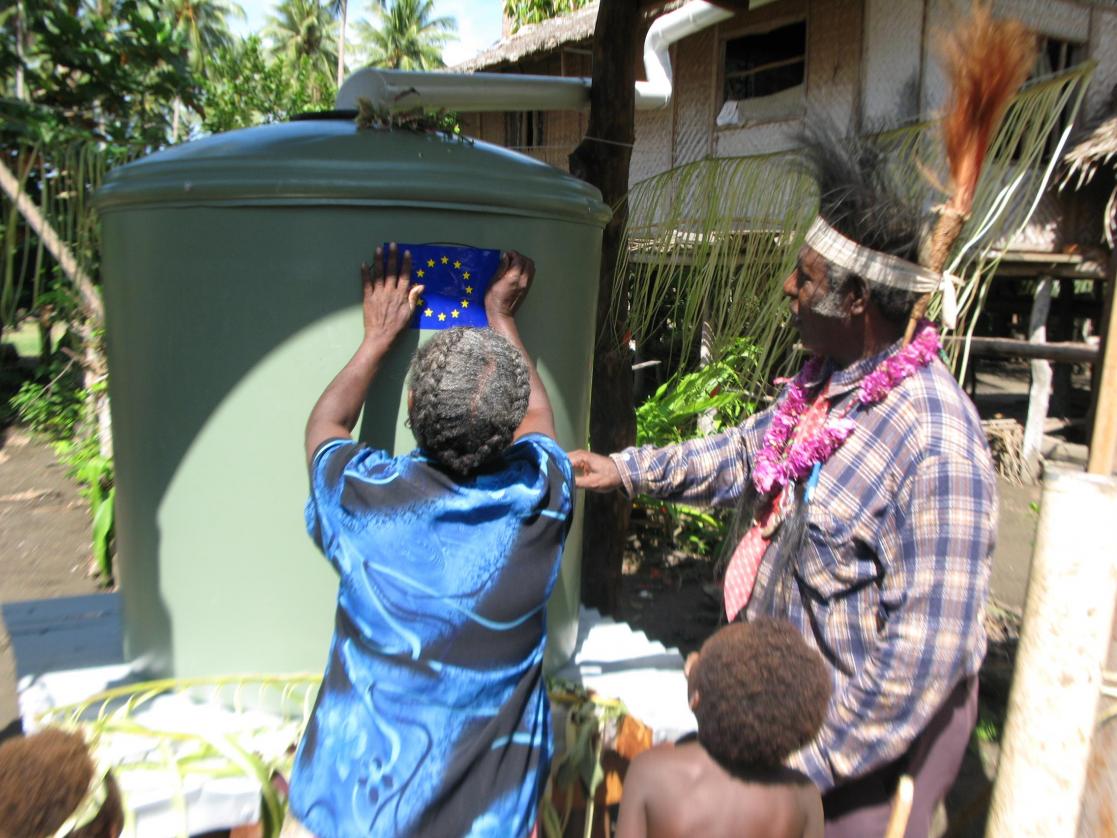Rural Water Supply and Sanitation Programme - Phase 2

I'm proud to be the oldest living old man in Sibilai ward in my generation who lived up to witness this development of Water & Sanitation in my own community. As an old man it makes life easier to use a proper toilet rather then the bushes. I'm proud to get a cup and fetch clean safe water to drink for the first time in my life thanks to RWSS project.
Oldest man in Sibilai Village, Suau, Milne Bay Province

CONTEXT
An estimated 4.2 M Papua New Guineans (61 % of the population) do not have access to safe water and 3.8 M (55 %) do not have access to improved sanitation. In an innovative approach in the context of PNG, the RWSS Project combined provision of water with hygiene awareness trainings and sanitation. To ensure sustainability all RWSS schemes built on a strong sense of ownership and commitment by the rural communities. The careful selection and close partnership with Non State Actors (NSA) allowed for constant monitoring and supervision to facilitate the completion of the schemes.
OBJECTIVES
- Improving health of rural communities by increasing access to safe water supply and sanitation facilities
RESULTS
- Train communities in health/hygiene, people skills, technical skills and raise awareness of gender issue to build up capacity of rural communities to manage their water scheme and improve sanitation and hygiene.
- Install sustainable community managed RWSS schemes (water supply and sanitation).
- Train NSAs to work with communities raising awareness on links between hygiene & health, provide technical & people skills to ensure sustainability and raise awareness on gender issues.
- Conduct studies and hydro-geological surveys to ensure environmental sustainability.
TESTIMONY

Struggle of a single mother
My husband left me and went off to Kavieng, New Ireland Province got married again and settled. I have lived and struggled alone to raise three of our children and adopted a daughter. We separated 7 years ago and since then he has never returned home.
I faced a lot of difficulties when my village was chosen for the RWSS project. I was undecided and did not know what to do because the project required us to do a lot of things to improve our living standard. Our jobs like planting flowers around the house, providing hand washing basin and making safe fireplace were simple. But building a family toilet, maintaining a house and bringing posts from the bush were hard and difficult jobs. This was hard and therefore I decided to exclude myself from the project.
But deep in my heart I was really against my own decision if I did that and began to cry. Then my 17 year old came up to me and said "mum don't cry". I will help you. I will stand by you all the way until we succeed. This was very encouraging; so I stopped crying and started doing everything we were told to do by the monitoring and evaluation officer.
The last thing was to pay K 100 (EUR 33) cash contribution. This was another struggle, trying to raise that money. Then thanks to one of my brothers. He saw my need and helped with the K 100 which I paid with thankfulness and I was at peace with all satisfaction. Water tanks arrived and I received mine including other material that came with it.
Kivere Aua, Koravake Village, Gulf Province.
